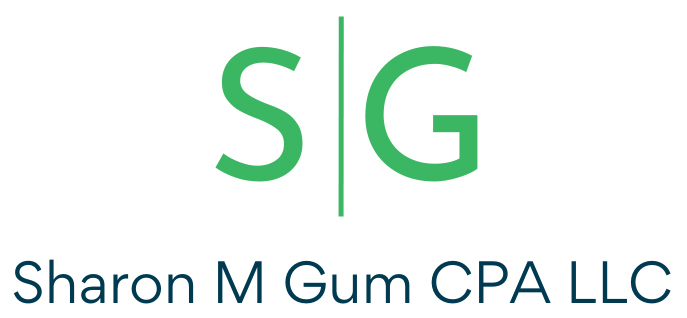When it comes to managing your business’s finances, understanding the roles of bookkeeping and accounting can help you make better decisions for growth and compliance. While bookkeeping and accounting are closely related and often overlap, they have distinct purposes that are essential to a company’s financial health. In this article, we’ll break down the differences between these two functions, why they’re important, and how working with a qualified CPA like Sharon M. Gum can help streamline your financial processes.
What is Bookkeeping?
Bookkeeping involves the day-to-day recording of a business’s financial transactions, such as sales, expenses, and payroll. It’s the foundational process that keeps financial data organized, allowing business owners to track cash flow and ensure transactions are accurately documented. Bookkeepers use a systematic approach to record these transactions, typically through accounting software, and categorize them into accounts such as assets, liabilities, and revenue. This organized record-keeping is critical for managing business expenses and staying on top of financial obligations, like paying bills and taxes on time.
Accurate bookkeeping is essential for keeping a clear record of all financial activity and providing data for accountants to analyze. Bookkeeping also supports a business’s compliance with tax regulations, as it ensures all transactions are recorded accurately, making tax preparation much smoother. Working with a professional bookkeeper, or an experienced CPA who offers bookkeeping services, can free up your time to focus on running your business while ensuring your financial records are in good order.
What is Accounting?
While bookkeeping focuses on recording daily transactions, accounting goes a step further by interpreting, classifying, and summarizing that financial data. Accountants take the information gathered by bookkeepers to create financial statements, analyze business performance, and provide insights for decision-making. Accounting involves processes like preparing balance sheets, income statements, and cash flow statements, which give a snapshot of a business’s financial health. Additionally, accountants handle tax planning, budgeting, and forecasting to help businesses set and achieve financial goals.
In a small business, bookkeeping and accounting may sometimes be handled by the same person, especially with the support of a CPA. For larger companies, however, these roles are often separated, with bookkeepers managing daily records and accountants focusing on analysis and strategy. A CPA like Sharon M. Gum can bridge both roles, offering comprehensive financial services tailored to your business’s needs.
Key Differences Between Bookkeeping and Accounting
The primary difference between bookkeeping and accounting lies in their objectives. Bookkeeping is more administrative, concentrating on recording transactions, while accounting provides a more analytical approach to interpreting that data. Bookkeepers focus on the present, ensuring records are current, whereas accountants look to the future, using financial insights to advise on strategic planning. These distinct roles, when performed effectively, offer a full picture of a business’s finances, from basic transactions to high-level strategy.
Moreover, bookkeeping requires fewer qualifications compared to accounting, as accountants generally need additional certifications, such as a CPA designation, to perform specialized tasks like tax preparation and auditing. This expertise is why many businesses turn to CPAs for both bookkeeping oversight and comprehensive accounting support, helping them maintain compliant and strategic financial management.
Why Both Bookkeeping and Accounting are Essential for Business Success
Together, bookkeeping and accounting provide a holistic approach to managing a business’s finances. Bookkeeping offers an organized foundation of data, ensuring that every transaction is recorded accurately, which helps prevent errors during tax time. Accounting builds on this foundation by interpreting the data, helping businesses make informed financial decisions. With both practices in place, you’re better equipped to understand cash flow, reduce costs, and set achievable financial goals.
For small business owners, outsourcing bookkeeping and accounting to a trusted CPA like Sharon M. Gum can be a game-changer. Sharon ensures your financial records are accurate, and she provides insights that support business growth. With her expertise, you can trust that both the daily details and the big-picture financial strategies are handled with precision.
The Role of a CPA in Bookkeeping and Accounting
A CPA offers specialized knowledge in both bookkeeping and accounting, providing the highest level of accuracy and compliance. With extensive training and certification, a CPA like Sharon M. Gum ensures that all financial processes, from transaction recording to tax planning, are carried out accurately and in line with current laws. Whether it’s reconciling bank statements or creating tax-saving strategies, Sharon’s services help you stay financially organized, compliant, and prepared for growth.
Furthermore, a CPA can help you choose the right accounting software, streamline your bookkeeping processes, and offer expert advice on tax deductions and credits. By working with a CPA, your business benefits from a trusted financial partner dedicated to helping you achieve your financial goals.
Final Thoughts
Understanding the difference between bookkeeping and accounting can help you make better decisions about how to manage your business’s finances. Bookkeeping keeps your daily financial records organized, while accounting provides insights to help guide strategic decisions. Both roles are essential, and together, they provide a complete picture of your financial health.
With the expertise of Sharon M. Gum, CPA, your business can benefit from streamlined bookkeeping and insightful accounting services tailored to support your growth and compliance. Let Sharon handle the numbers, so you can focus on what you do best—growing your business with confidence and peace of mind.

Sharon M. Gum, CPA helps businesses throughout Southern Illinois succeed by offering business setup and advisory services, tax preparation, payroll and bookkeeping services. You didn’t start a business to manage payroll and keep track of bank reconciliations. By outsourcing your books to our financial experts, you can get back to doing what you love. With over 30 years working as an accountant in Waterloo IL, Sharon M. Gum, CPA can save you time and money – whether you have 2 employees or 20. We would love to help your business succeed. We are proud of the relationships we’ve built with small business owners throughout Monroe, St. Clair, and Randolph counties.



